Yesterday, Ben and I visited the Melbourne Aquarium as his first excursion for home schooling. I hadn’t been the big fish bowl for a long time, and was excited about going. Here are a few snaps of our visit.
This documentary and these facts hit me like a tonne of bricks, and I have been feeling overwhelmed all day and did more research during my lunch hour. I found so much information, that I have decided to split this post into a series of three. All titled “End of the Line” like the doco. Firstly this one called Dread, then Understanding, then Solutions. I still cannot figure out why this issue has not come to my attention before? It was right there in front of my eyes, and has been in the media occasionally, but it took a visit to the Aquarium to smack me in the head. What I found out scares me.
This is too big an issue just for one post and I am still very much overwhelmed! Until tomorrow friends.

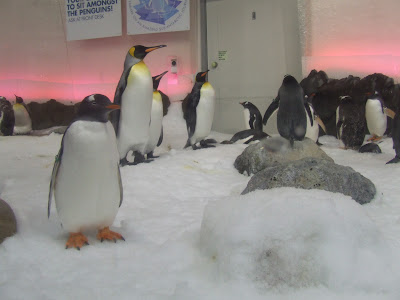
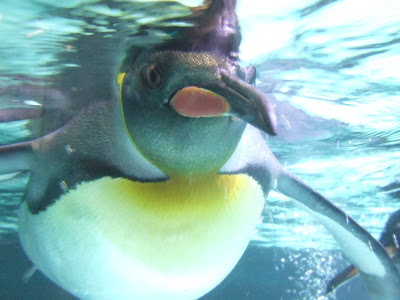
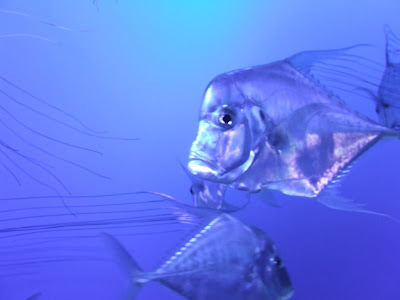

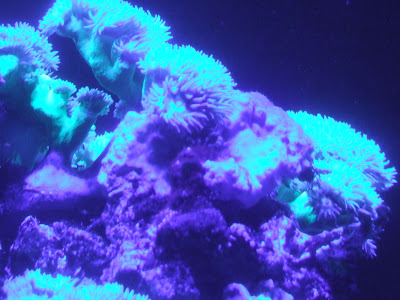
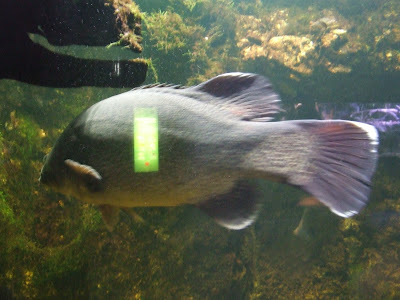
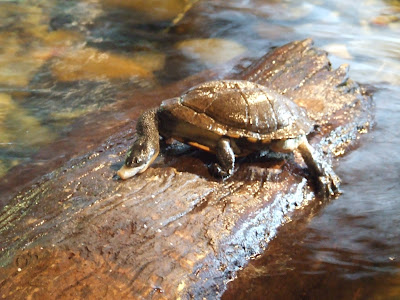

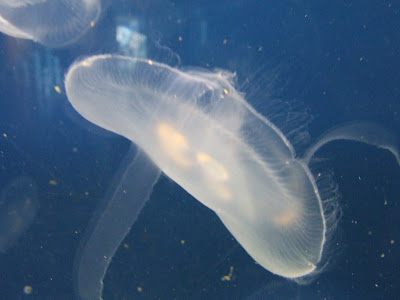
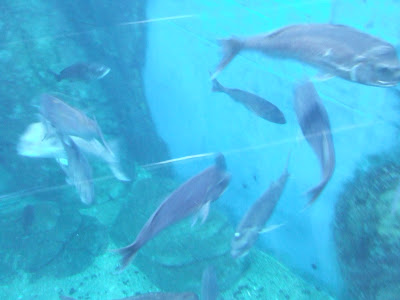
I agree with you Gavin, the fish are going to disappear, the ocean is going to die…I say I love the ocean, but do I really?!!!
I first started being concerned about the ocean when I joined the Cousteau Society (http://www.cousteau.org/) back in the 70s. Over the years I did not remain a member…I’m joining again today. Thank you for the wake up call!
Thanks Theanne, it was a wake up call for me as well.
This is why I rarely eat fish/seafood, even farmed fish, which can be even more ecologically unsound than wild caught.
And I also think about this issue every time I see fish oil capsules promoted for omega-3/arthritis/brain function/whatever, or worse still, capsules of made from krill. Krill are even lower on the food chain than the oily fish harvested for ‘medicinal’ human use. That means many more species depend on them. If we humans start harvesting them in large quantities…you can figure out the ending. As you mentioned the other day, Gavin, omega-3 FA can be obtained from flax seeds.
Totally agree Tracey. Back in our grandparents day there didn’t seem to be a need for those medicinal uses, however I do remember getting force fed cod liver oil a few times when I looked a bit peaky.
And spot on about the flax seeds. They are a good source of omega-3 fatty acids.
This is an issue that is close to my heart. I’m not a bleeding heart greenie. I’ve been too close to the actual processes of food production to be naive about it. I can cope with killing animals for food, and even with killing of pests that are competing where it is absolutely necessary. But so much of the destruction of the earth’s marine ecosystems, and our fish stocks, is just sheer lunatic waste. The percentage of the world’s fish catch that is wasted by-catch, killed and chucked back – we’re like foxes in a chookhouse on a killing binge. The percentage that goes to feeding cats and other pets because communities are so fragmented people are lonely. The percentage turned into (I agree with Tracy) fad products like krill oil because we are all so anxious about a diet that is loaded up with junk food. The destruction of mangroves, dunes, estuaries and breeding habitats through our status driven urbanisation in desire for water views. Pollution and eutrophication. Trawling practices that leave seabed wastelands. It’s….sinful…hard to find another word.
I think you summed up the whole issue in this comment Linda. Lets add barbaric and greedy to the word list as I think that these fit the description aptly.
Gav x
Gav, one word – Aquaponics! Grow your own fish at home, as well as growing healthy organic vegies while you’re at it!
That’s why Sal and I are starting to build our own system… We’re looking forward to backyard trout or perch in the coming years. We’re planning to use recycled materials for everything (apart from the pump and plumbing) – bathtubs for the grow beds, a couple of second hand water cubes for the fish tanks, recycled timber and steel for the structure, the scoria from a mate’s old gravel driveway for the grow bed media, and we plan to connect it all to solar in the future. See http://www.backyardaquaponics.com/ or http://www.aquaponics.net.au/ for more ideas… you could even convert your swimming pool! 🙂
Nice one Kane and Sal. I have joked many times to Kim that we were going to convert the pool into a fish farm! Don’t think it went down very well. 😉
As Darren mentioned, just check where the feed comes from as much of it is small fish ground up for the protein. You should be able to source some sustainable feed.
Yeah i have thought of that. Most of the fish food will come from vegie scraps and various unwanted bugs, slugs and snails from the garden, but i’m sure we’ll get to a stage where extra is required. Will definately be sourcing sustainable feed. 🙂
I agree with the other commenters above, the whole thing about the fishing industry scares me.
I grew up in a fishing town, and saw the scallop dredges destroy whole populations of marine life in Jervis Bay. As I diver, I saw the damage first hand – the bottom of the bay became a desert. Initially we could hand-pick enough scallops for a few meals in one dive, but by the end we couldn’t even find a single scallop. The ‘boom’ industry suddenly went into bust, all the fishing boats disappeared and I’m sure many family fishermen lost lots of money (and their livelihood), but they only had themselves to blame. Plenty of people had been warning them about what was to come.
Thankfully now, 20-30 years on, the bay has largely recovered and is now a renowned tourist diving destination.
Farmed fish are usually fed ground-up wild fish – requiring several tons of feed to produce one ton of farmed fish. Not really a solution. I’d encourage people doing aquaponics to find out where their fish food is coming from and avoid contributing to the problem, too.
Hi Darren, that is a good real life example of overfishing and one close to home.
Gav
We have limited our seafood intake for years now because of this issue, and try to be mindful of which seafood/ from where and how it is processed when we do buy it. People who eat tinned tuna at work everyday think it’s odd to hear me mention that we rarely eat fish! The oceans have been overfished, polluted and abused, just as our lands/ waterways and agricultural areas have been.
You can get the Australia Sustainable Seafood Guide: http://www.marineconservation.org.au/Product.asp?CategoryID=5 or this: http://www.sustainableseafood.org.au/Sustainable-Seafood-Guide-Australia.asp?active_page_id=695
I am quite surprised this is a new issue to you, Gavin, but I am sure you will learn a lot and help others learn too.
Cheers Bec. Thanks for the link, I added it to the further reading on the next post.
It was not really a new issue to me, it was just that it was not front of mind. We had been eating MSC certified seafood for about 4 years, and not a tin of tuna in sight.
I try to describe this issue as being at the peripheral of my knowledge and needed to learn more about it, however I was being sustainable without really knowing all the facts!
Gav x